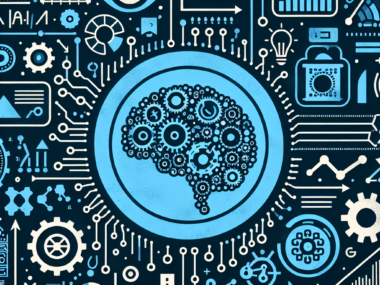According to a government report initially viewed by the BBC, teachers are leveraging artificial intelligence (AI) to streamline processes and save time by automating various tasks.
Modifying the reading age of texts, creating handouts, and composing emails to parents were identified as common applications of artificial intelligence (AI) by teachers, according to a report. Some educators mentioned a “small number” who utilized AI for grading and providing feedback.
Teachers expressed that AI afforded them additional time to focus on more impactful aspects of their work. However, the report cautioned about the potential drawbacks, emphasizing that AI could generate content that is unreliable or biased.
This insight comes from a Department for Education (DfE) report that analyzed 567 responses received during a call for evidence on AI in education, predominantly from schools in England, conducted over the summer.
The majority of respondents to the report expressed a “broad optimism” regarding the use of AI in education, though nearly all had reservations, particularly concerning AI potentially generating inaccurate information, such as in the context of grading assessments.
The findings from the report are expected to influence future policies on AI, according to the Department for Education (DfE). The government is actively involved in realizing the potential of AI in education.
An example illustrating the practical use of AI comes from Ben Merritt, the head of modern foreign languages at King Ecgbert School in Sheffield. He utilized AI to create a cartoon for a class exercise where he needed an ideal illustration for labeling facial features in German. Merritt found it challenging to locate a suitable image on the internet until he employed AI, allowing him to precisely specify his requirements and obtain the perfect image for the lesson.

AI swiftly generated this cartoon for Mr. Merritt’s students, completing the task in approximately 15 seconds.
“There’s a considerable amount to manage as a teacher, whether it’s administrative tasks, resource creation, grading, feedback, and so forth,” Mr. Merritt remarked.
“Reducing the burden of administrative tasks—not only reducing the time required but also enhancing them—allows me to concentrate more on enhancing teaching practices.”
Despite the benefits, Mr. Merritt emphasized the importance of verifying the content generated by AI.
“I requested it to generate some questions from a YouTube video, and the 10th question it generated was something like, ‘where should you click to like and subscribe to this video?’ which is not useful in a classroom setting at all.”
The DfE report indicates that some teachers are utilizing AI to illustrate and “highlight the risks and limitations.”

Tilly believes that AI could play a role in academic support, but she emphasizes the essential role of teachers for addressing the “emotional side” of the school experience.
Tilly, a Year 9 student at Mr. Merritt’s school, where teachers have established a working group to exchange ideas, shared her experience: “My science teacher… demonstrated how to calculate something, and then AI generated questions on how we could practice that. However, the answers turned out to be incorrect.” Tilly highlighted the importance of double-checking the accuracy of AI-generated content.
Catherine Elliott, employed by Sheffield City Council, organizes meet-ups for teachers throughout the city under the educational institution Learn Sheffield. These gatherings provide a platform for educators to discuss their utilization of technology in teaching.

Catherine Elliott regularly organizes meetings, gathering dozens of teachers each term.
Catherine Elliott shared that the majority of teachers are utilizing AI for resource creation, such as simplifying text to match the comprehension level of students. She emphasized its positive impact on children with special educational needs, disabilities, or those learning English as a second language. Additionally, teachers have reported using AI as a starting point for report-writing, generating useful sentences that can be personalized.
According to a survey by Teacher Tapp, four out of 10 teachers are already incorporating AI into their schoolwork. Professor Becky Allen, the app’s co-founder, noted that some teachers, particularly in subjects like math, have embraced AI to alleviate their workload, highlighting the normality of not manually marking math homework.
The question of whether AI can be trusted for broader feedback is raised, with the potential to save teachers time in “low-stakes situations.” This is particularly relevant in light of teacher strikes and concerns about workload and burnout, as reported by the Education Support charity.
The Department for Education (DfE) report indicates that, for some teachers, using AI has reduced overtime, improved work-life balance, and increased job satisfaction. Education Secretary Gillian Keegan emphasized the need for a thoughtful approach to harness the transformative potential of AI in education while ensuring safety and security. The report’s findings will inform future decisions and policies related to AI in education.











